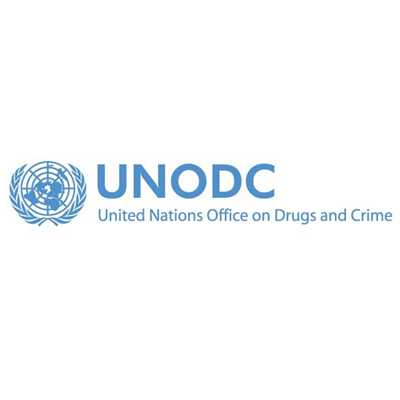UNODC works in all regions of the world through our normative expertise, our research, our regional and global programmes, and our extensive network of field offices.
The Office is the guardian of the UN Convention on Transnational Organized Crime (UNTOC) and its Protocols, the UN Convention against Corruption (UNCAC), and three international drug control treaties. It supports implementation of 19 international legal instruments against terrorism and the UN standards and norms in crime prevention and criminal justice.
The Office is committed to supporting UN Member States in implementing the 2030 Agenda and the 17 Sustainable Development Goals at its core. The 2030 Agenda clearly recognizes that the rule of law and fair, effective and humane justice systems, as well as health-oriented responses to drug use, are both enablers for and part of sustainable development.
The UNODC Liaison Office in Brussels (BRULO)
The UNODC Liaison Office in Brussels (BRULO) is a strategic presence in Brussels responsible for relations with the EU, NATO, WCO and the Government of Belgium.
The Office is tasked with promoting a better understanding of UNODC mandates to all institutions including think tanks, NGOs, associations, universities and the general public in Belgium to enhance cooperation and develop joint ventures, including with the Brussels-based UN agencies, through policy dialogues, advocacy and resource mobilization. In addition, the Office provides support to UNODC Headquarters in Vienna and the global Field Office network in their relationships and programmatic cooperation with Brussels-based partners.
Key Areas of Work
In line with the UNODC Strategy 2021-2025, the Office’s work is clustered around five main thematic areas:
- Tackling the world drug problem through balanced, evidence-based responses to address drug abuse and drug use disorders, as well as the production and trafficking of illicit drugs.
- Preventing corruption by promoting integrity and good governance and helping recover stolen assets.
- Countering terrorism through effective, accountable and inclusive legal, crime prevention and criminal justice measures in line with international norms and the UN Global Counter Terrorism Strategy.
- Combating organized crime by providing technical assistance and support and strengthening international cooperation to address organized criminal activity and all forms of trafficking.
- Preventing crime and promoting criminal justice through human rights-based and victim’s centered approaches that strengthen the rule of law and access to justice.
Since the signing of an exchange of letters between EU and UNODC in 2005, cooperation on shared priorities between the two organizations has rapidly developed. The EU is among the top donors to UNODC. EU-UNODC projects are providing support worldwide to develop standards, capacities and cooperation related to illicit drugs, organized crime, corruption, terrorism, and criminal justice.
Campaigns
Each year on 30 July, UNODC joins forces with Belgian, European and UN partners to mark the World Day Against Trafficking in Persons and raise awareness across Belgium through the Blue Heart Campaign.
Annual campaigns also support UNODC’s awareness-raising efforts with partners for World Drug Day (26 June) and International Anti-Corruption Day (9 December).

